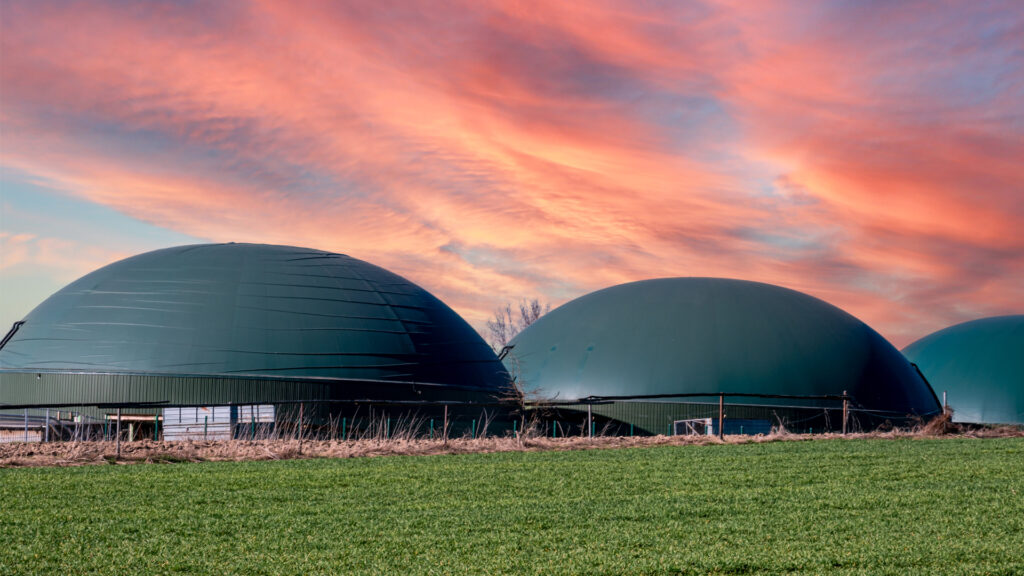By Brooke Ward, Food & Water Watch
Year after year, the Florida Legislature has passed laws that allow utilities to shove more energy- and storm-related costs onto Florida families. This year is no different.
On Thursday, the Senate unanimously passed a bill that claims to diversify Florida’s energy sources through speculative investments in biogas infrastructure. The bill (SB 1574) not only prioritizes dirty energy when more affordable energy options — like solar — are readily available, it also plans for Floridians to bankroll this expensive biogas option.
State leaders have burdened Floridians with covering the costs of storms, the volatility of fuel prices, shareholder returns and numerous other fees and add-ons. In the same vein, state Sen.Nick DiCeglie has introduced a version of this energy bill for the past three years, citing the need to “diversify Florida’s energy sources.” Unfortunately, the bill is yet another legislative move that prioritizes corporate profits at the expense of Florida families.

Renewable natural gas (RNG) — also known as biogas or biomethane — is gas produced from breaking down plant matter, food waste, agricultural waste, manure, municipal sewage and wastewater. This “renewable” gas production releases harmful methane gas similar to the fracked gas that currently powers our state.
RNG is just methane gas from a different dirty source. Utility companies have “greenwashed” it as a way of getting ratepayers to help pay for the high costs of biogas and to pad their profits.
Utility rate hike requests keep getting bigger, because utilities are granted ways to tack on additional costs to bills through various legislative moves. In fact, Gov. Ron DeSantis’ Public Service Commission has rubber-stamped billions of dollars in increases in the past few years for Florida’s for-profit utilities.
This year, in February, Florida Power & Light filed for the largest rate increase in U.S. history, another potential increase for millions of Floridians. If Sen. DiCeglie’s bill passes, the potential costs of biogas infrastructure stand to make energy bills even more burdensome.
Moreover, more methane gas of any origin means more climate-altering pollution, leading to increases in extreme weather events like hurricanes. And hurricanes cost Floridians more money. A report released this spring by Colorado State University forecasts an intense hurricane season for Florida, even outpacing the damages caused by Helene and Milton last year. Those storms ran Floridians nearly $3 billion alone in storm cost recovery from utility companies.
When politicians talk about the need for more electricity produced in the state, why is their inclination to prop up the value of dirty energy scams instead of using Florida’s most abundant natural resource? We’re called the Sunshine State for a reason, yet we only derive 8% of our energy from the sun, a more affordable long-term option with added benefits.

It seems counterintuitive to encourage and incentivize the build-out of a less efficient energy source that has the potential to heavily pollute our air with waste. Passing this bill could turn the whole of Florida into one big dumpster.
No one is likely to benefit from the biogas bill except for the utility companies who could make millions because of it. Just look at the list of registered lobbyists on the bill. Energy providers like Florida Power & Light and biogas companies like Covanta stand to capitalize.
As hardworking Floridians fight to stretch every dollar, we need our leaders fighting for affordable energy and climate resilience, not standing idly by while Florida families are paying for yet another bad utility investment. Senate President Ben Albritton and House Speaker Daniel Perez kicked off this session with a focus on affordability. And, Minority Leader Fentrice Driskell said we need to be addressing kitchen table issues.
The Senate missed the mark by passing SB 1574; now is the time for House leaders to rally their caucuses against this bill. It’s incumbent on Florida’s residents to contact their state representative today and demand they say “no” to dirty, costly biogas.
Brooke Ward is senior Florida organizer with the national advocacy organization Food & Water Watch. She lives in Largo. Banner photo: A row of electric meters (iStock image).
Sign up for The Invading Sea newsletter by visiting here. To support The Invading Sea, click here to make a donation. If you are interested in submitting an opinion piece to The Invading Sea, email Editor Nathan Crabbe at ncrabbe@fau.edu.




Renewable natural gas (RNG) has a place in Florida’s future sustainable fuel mix. As the article notes RNG “is gas produced from breaking down plant matter, food waste, agricultural waste, manure, municipal sewage and wastewater.” It is methane, and it is a byproduct of life and human activity. Methane will be released into the environment regardless of whether it is harnessed for energy; in-fact methane is far more harmful as a green house gas unutilized than the co2 generated after its combustion for energy. Many progressive states and environmental groups support RNG as a solid transition fuel. Not everything can be solar and wind, and many sources of energy will be needed. RNG can and should be an important part of the fuel mix.